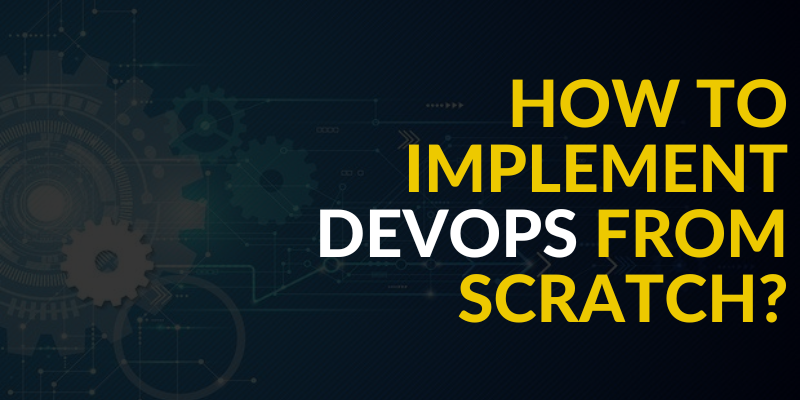
Introduction
DevOps is a methodology or set of processes that aim to improve the software development lifecycle by enhancing work across the board. DevOps focuses on increasing team productivity and software quality through better collaboration, communication, and process automation between software developers and IT operations.
This blog will discuss how to implement DevOps From scratch. To understand and gain knowledge about the Devops lifecycle, you can register for FITA Academy at Devops Training In Madurai, which will help you focus on providing the proper training for DevOps core concepts.
How to Start DevOps from Scratch:
To successfully implement DevOps in your business, you need to start with the basics, and it is essential to know about every concept, tool, and practices. Here are six steps to start DevOps from scratch.
-
Learn programming languages:
DevOps include the knowledge of programming languages. Because only then DevOps developers will be able to comprehend the system and develop efficient management methods.
Programming languages are important to DevOps because they enable it to manage, check, and upgrade system resources effectively. If you thoroughly understand the programming language, you can create incredible, error-free code that enables optimization, scalability, and portability. Some popular languages to learn for DevOps are C, C#, Java, Python, and Ruby. Perl, JavaScript, etc., are popular scripting languages.
-
Understanding different operating systems:
The fact that you should be familiar with the operating systems for which you are developing code if you are familiar with the programming language should be an obvious explanation. The Devops Training In Pune teaches learners about the fundamental concepts and technologies and how they interact.
Because having an understanding of the operating system will increase your productivity and efficiency while developing. Additionally, you would be fully knowledgeable about memory and disc usage, which would speed up the code’s writing.
-
Cloud Deployment:
The deployment of cloud computing must be comprehended. DevOps configuration of various servers, including infrastructure, applications, networking, web servers, databases, etc., is made more accessible by this tool.
Understanding cloud deployment enables you to proceed without having to rewrite configuration files and also assists in dynamically scaling up and down servers.
-
Networking and Security:
To test your services, networking and security knowledge are necessary. Continuous integration and deployment pipelines are also made possible with this. The configuration of DevOps network devices might benefit from networking tools like Ansible and Jenkins. Devops Training In Hyderabad will provide good Knowledge and Training on the benefits of DevOps and how it works.
-
DevOps Automation Tools:
In DevOps, automation is essential. Adopting automation tools will help deal with limitations. AWS, Jenkins, Prometheus, Nagios, Splunk, and other market providers offer a variety of automation tools.
-
Get The Right Cloud Providers:
Cloud services like SaaS, PaaS, and IaaS can play a crucial role in successful DevOps implementation. You must conduct thorough research and find the ideal cloud partner to enhance your development cycle.
Conclusion:
As far as we have discussed how to implement DevOps From scratch. The best practice of DevOps will encourage faster, more accessible, and more secure deliveries of business growth to an organisation’s end users or customers. If you want to learn DevOps core concepts, you can enrol for the Devops Training In Gurgaon, which gives students the understanding skills they need to attain their career needs.
